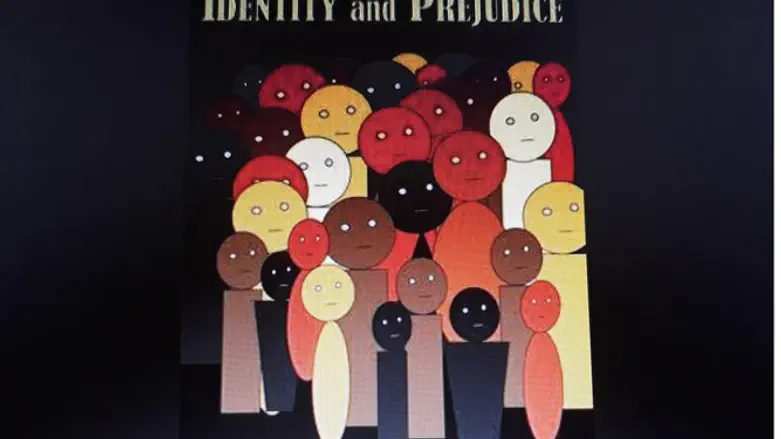
Devoted to inter-ethnic relations across eras and continents, Identity and Prejudice by Farrell Bloch, (Mantua Books) is one of the most fascinating and thoughtful books in years. Many parts are brilliant. The book as a whole is excellent and excellently readable. Those questions it answers will be in our heads for decades. Those questions it does not answer will inspire empirical researchers for years to come.
A common feature of the book is the author’s listing of key phenomena. For example, in the opening pages the author list five pillars of strong ethnic identity: activities of its own; frequent self-reference; commitment to create future generations; readiness to respond to insults; and rationalizing behaviours that other groups find offensive.
In the middle of book, the author lists 21 astute ways in which journalists often distort the news, purposely or not. Among the core 21 options available to journalists, they can choose to avoid reporting an event, distort its reporting, minimize or maximize attention, design misleading headlines, and choose victims who are liked or who are disliked,
The clarity of the author’s thinking is bound to lead empirical researchers to measure the relative power of each of these factors and which ones are more associated with different kinds of identity and different degrees of biased reporting, as they case may be. The author himself is very successful at using the five pillars of identity to contrast the high self-identity of Muslim immigrants in Europe with the low identity of aboriginal Europeans themselves. He is also very successful at using the 21 elements of reporting to explain why and how some reporting is profoundly biased.
The back cover mentions the author having been a Princeton University economics professor. Yet the book itself makes fluid reference to so many important types of facts, nations, eras, data, relationships, and authors. Most readers might be forgiven for being unable to guess what subfield of the humanities and social sciences Farrell Bloch truly embraces.
 The conceit of western elites leads them to irony of being blind to the west’s unique contributions to the advancement of human life and to exaggerating their ancestors’ own evil conduct.
The conceit of western elites leads them to irony of being blind to the west’s unique contributions to the advancement of human life and to exaggerating their ancestors’ own evil conduct. Bloch manages to find space to discuss the self-confidence of majorities in America and in Western Europe, in decline in both settings and especially in Europe. His cross-national explanation is that a self-critical elitist paradigm is the major driver of declining self-confidence. In both Europe and America, teaching, professorial, media, and political elites are deeply critical of their own civilization’s imperial and racist history. They seem oblivious, writes Bloch, to the immense role of imperialism, colonialism, exploitation, plundering, xenophobia, democide, and racism throughout human history. It is almost as if the conceit of western elites leads them to irony of being blind to the west’s unique contributions to the advancement of human life and to exaggerating their ancestors’ own evil conduct.
Bloch manages to find space to discuss the self-confidence of majorities in America and in Western Europe, in decline in both settings and especially in Europe. His cross-national explanation is that a self-critical elitist paradigm is the major driver of declining self-confidence. In both Europe and America, teaching, professorial, media, and political elites are deeply critical of their own civilization’s imperial and racist history. They seem oblivious, writes Bloch, to the immense role of imperialism, colonialism, exploitation, plundering, xenophobia, democide, and racism throughout human history. It is almost as if the conceit of western elites leads them to irony of being blind to the west’s unique contributions to the advancement of human life and to exaggerating their ancestors’ own evil conduct.
Block uses the elitist paradigm to help explain the low inclination of western media to report Islamist aggression or crime in the west.
Especially in Europe, the media avoid or downplay characterizing the perpetrators and victims of violence by Muslim gangs against Jews. This has led, notes Bloch. to the gradual but seemingly inexorable exodus from Europe of its Jewish population.
Perhaps most troubling were the years of successful but unreported and unpoliced efforts by Pakistani and Afghan gangs using violence to force into prostitution hundreds of white and Sikh girls in Rotherham, south of Leeds. Bloch also sees the weakness of European identity, encouraged by the elitist paradigm, as explaining the low assertiveness of European police as well as the low inclination of European males to stand up for the women in their lives when accosted by Muslim males.
Block sees the elitist paradigm as having more general effects as well. In his view, it helps explain the low inclination of the United States and other western countries to stand up for centuries old Christian communities in Iraq, Syria, and Egypt facing violent assault and even death.
The highly readable book is short. It does not always have the room for extensive discussions. So Bloch does not truly explore the many varying implications for the United States of its potential evolution into a majority non-white country. Nor does he discuss the alternative scenarios that face Western Europe as its indigenous, nominally Christian population continues to decline with far lower birth rates than its Muslim immigrants. The book does not discuss whether Islamo-European birth rates will fall, indigenous rates will rise, indigenous Europeans will assimilate to Islam, Europeans’ Christian identity will return, or Europe will evolve into a battlefield of ethno-cultural conflict.
Empirical researchers may have far more to say about this in the future, inspired by Bloch’s excellent writing.
Conrad Winn is Professor of Political Science, Carleton University. Co-author of Theater of Terror: Mass Media and International Terrorism, Hate on Trial, and other books on media and political behaviour. Creator of 2000 polls in Canada and on every continent for U.S., U.K., Canadian and other governments plus corporations, universities, charities and unions. Ph.D. Wharton.